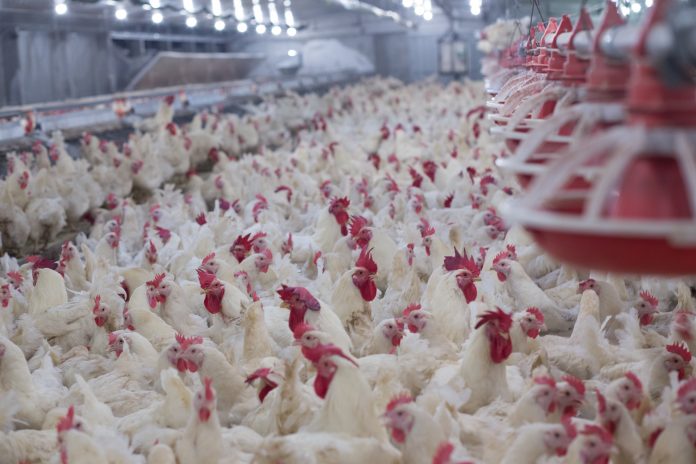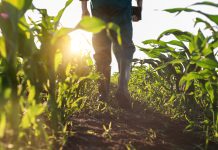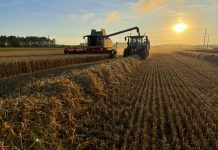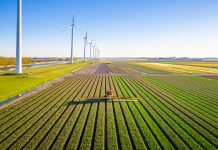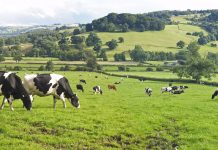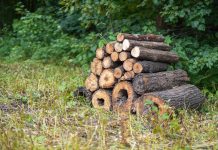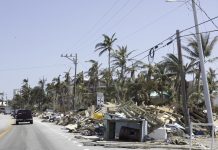Lindsay Duncan, Farming Campaigns Manager, World Animal Protection, explains why we need to rethink food security
Food security has been a priority for countries globally for nearly a century. In post-war UK, we saw a huge shift in how we farm, from traditional outdoor mixed farming methods to producing the highest quantity of meat at the lowest cost.
This changed how we eat as meat became a normal daily presence on our dinner plates. We have continued since the 50s to make animal farming as ‘efficient’ as possible by selectively breeding animals that grow bigger and quicker, have larger litters, and produce more milk. But this efficiency has come at a considerable cost to people, animals, and the planet.
Farms transitioned into what looks more like a production line than the traditional image of animals roaming around fields. Producing enough and the right kind of food for the large numbers of animals on these farms meant feed production started to be outsourced.
Factory farming is a major cause of deforestation
Grains grown in UK fields became unsuitable for fast-growing chickens that need high protein feed they can digest and convert to body mass easily, to meet the desired weight as quickly as possible. Soya imported from South America makes up most chicken feed used in the UK today.
Factory farming is a major cause of deforestation, as ecosystems are cleared to grow ever more soya for our growing livestock numbers, which in turn fuels the climate crisis. Much of the grains used in pig feed, until the conflict in Ukraine, were imported from both Russia and Ukraine. This vulnerability has had a major impact on the UK’s pig industry.
Recent events such as the conflict in Ukraine and the Covid-19 pandemic have shown just how vulnerable this way of farming really is, and that our current food system is anything but secure. Along with breeding to be bigger and more productive, animals were also moved indoors to use less land space. Intensive farming might reduce the land required but consumes far more resources like water and fuel which are now becoming worryingly scarce. Keeping hundreds of pigs or thousands of chickens in a single barn requires energy and water; lighting; ventilation systems for heating and cooling; automatic feeders; watering; and biosecurity stations. This intensive infrastructure is not typically found on free-range farms.
Antimicrobial resistance has a role
Large numbers of animals in small areas also lead to pollution of the surrounding environment from animal waste which threatens ecosystems. High nitrate levels from animal waste entering the UK’s waterways have been attributed to ecological dead zones in our rivers, however, this is not the only concern. Genetically uniform animals kept confined in cramped conditions means these farms are the perfect breeding ground for diseases, with increasing instances of new diseases jumping from animals to humans, which risk human health.
Additionally, poor conditions on farms with overcrowded, barren environments, mutilations like tail cutting and early weaning ages require the overuse of antibiotics, fed to whole groups of healthy animals to prevent them from inevitable illness. This antibiotic overuse is increasing the levels of resistant bacteria otherwise known as AMR (Antimicrobial resistance), rendering lifesaving antibiotics for humans and animals less effective or incapable of treating infections. This is a major public health crisis that is growing year after year and is already responsible for over 1 million human deaths globally.
Our food system is broken
We have continued an approach to food security that has made us reliant on increasingly volatile international trade, requires land clearance to produce animal feed, increases the pressures and demand for energy and water, and is risking human life. On top of this over a billion animals are produced in the UK each year, an estimated 80% of these suffering on factory farms.
The way we farm animals has an impact on people and the planet and shows us that we are all deeply interconnected. It’s time to rethink what food security looks like, and at its heart, it needs to be humane and sustainable. There is no future for factory farming.
Sign our petition to the UK government and demand no more factory farms at: www.worldanimalprotection.org.uk/get-involved/no-future-factory-farming

